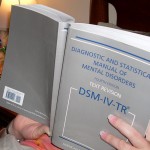Daniel Bader, Ph.D.
Caging the Lion: Identifying and Managing Bipolar Triggers
While episodes of bipolar disorder are often cyclical, for many people with bipolar disorder, episodes are often brought on by what are called “triggers.” A trigger is something that often precedes an episode, and managing triggers is one an important part of managing bipolar disorder. However, in order to manage triggers, it is necessary to identify them.
Given the apparently random nature of bipolar disorder, how do we identify them? Fortunately, there are several techniques that can be used to identify our triggers and reduce their presence or at least their influence on our bipolar disorder. In this article, I will look at some ways of identifying triggers and how to handle them once discovered. Continue reading
The Heroism of Everyday Life with Bipolar Disorder
It is very easy to become disappointed with ourselves when we have bipolar disorder. After all, we often won’t accomplish as much as other people. Moreover, we often develop grand plans while hypomanic, only to find that we cannot carry them out. This level of disappointment can really affect our overall happiness, as it makes us feel like we are not what we should be.
However, I want to suggest a different way of looking at it. If we look at our accomplishments not relative to a standard that society or we have set up for ourselves, but relative to our actual challenges, people with bipolar disorder actually accomplish quite a bit. In fact, just the process of going through everyday life can be a heroic endeavor. Continue reading
Gifts of the Storm: Creativity and Bipolar Disorder
I’ve written a lot about the difficulties with having bipolar disorder. Today, I want to talk about one of the most positive aspects: how it affects our creativity. Bipolar disorder gives us wonderful connections between ideas, many of which can be very insightful. It gives us a passion for beauty that expresses itself artistically. This positive aspect is not without its challenges, but when focused, can be an exciting part of our lives. Continue reading
The Off-Label Marketing War: How Much Do We Really Trust Our Physicians?
The federal and state governments in the United States have declared war on pharmaceutical companies that are marketing medications off-label. In the United States, medications are approved for certain purposes. Physicians are free to use approved medications for different purposes, which is called prescribing “off label.” However, pharmaceutical companies are not allowed to market their medications for any of the unapproved purposes. That is called “off-label marketing”, and it is illegal. Continue reading
The Smeared Rainbow: How Bipolar Disorder Can Be a Different Experience for Different People
I’ve had the opportunity to meet a lot of people with bipolar disorder, and one thing that I’ve really noticed is the way that bipolar disorder affects people in very different ways. The difference isn’t simply the difference between types like bipolar I and bipolar II. It also isn’t just the difference between people themselves. Rather, bipolar disorder really differs in the way that it manifests itself in people’s lives. Continue reading
The Conditions of Disability: Bipolar Disorder and the "Sick Role"
One idea that I encountered a little while ago is a concept from sociology called the “sick role.” It is the idea that there are certain implied rights and obligations of people who are sick in various ways. In short, people who are sick are exempted from certain social obligations, but in turn are obliged to try to get better and do so by seeking professional assistance. I realized that people with bipolar disorder are often cast in this sick role, but that such a position puts us in a passive situation that is ultimately not good for us. Continue reading
Making an Impression Versus Making a Connection: Mitigating Social Anxiety
For me, one of the most frustrating symptoms of bipolar disorder is social anxiety. In conversing with other people, I often find myself running a constant check on what it is I am saying and how other people will respond to it. After conversing with people, I often find myself going over every little thing I said, hoping that I didn’t offend anyone.
Unfortunately, since my mood tends to influence (*cough* distort) what I think people think of me, this experience can be very taxing. This can lead me to avoid social situations and to feel very uncomfortable in those situations. Even when I do pull myself up by my bootstraps and do it, it can make the experience of interacting with people far less pleasant than it could be. Continue reading
Loss of a Brother: Mourning the Healthy Me
In having bipolar disorder, there is an important person that I have lost. Occasionally, I meet him in my imagination, especially in my disappointments. This person is the “me” that I might have been if I had never had bipolar disorder, and he has been with me in my imagination for a long time.
I first encountered this concept when researching social rhythm therapy. I won’t discuss the details of that therapy in this post (there’s more information here), but one of its important concepts is that we go through stages of coping with bipolar disorder. One of these stages is “mourning,” the stage in which we come to terms with the negative ways in which bipolar disorder has impacted our lives. Continue reading
Whatever Works: Why Bipolar People Are the Best Authorities on the Best Treatments
Given that I have so many opinions about bipolar disorder (hey, I started a blog about it), I have surprisingly few opinions about what sort of treatments are best. Often, I’ve encountered the belief that everyone on bipolar disorder should be on a certain type of medication, or that everyone should be in a certain type of therapy. These debates can often become quite heated. However, in all of these debates, I realized I don’t really have any strong views. Continue reading
Is Bipolar Disorder Real? Version Two: Is There a Test for Bipolar Disorder?
For the first installment in this series, on whether or not bipolar disorder is a brain state, click here.
I’m going to continue with my occasional feature about what is meant when people ask whether or not bipolar disorder is real. The first article asked whether or not bipolar disorder is a brain state, but this one will focus on whether or not there is a test for bipolar disorder. The two questions are to some extent connected, as they rest on a confusion between what is real and what is scientific. Continue reading










